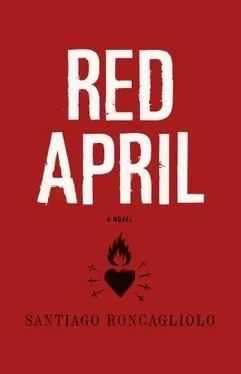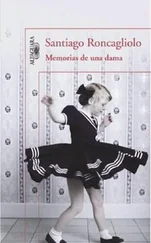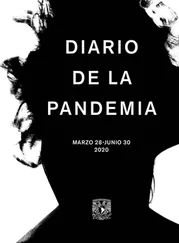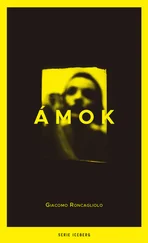The local police station had only one floor, divided into two separate spaces. In one, waiting on a desk, were two tamales, a little cheese, bread, and café con leche. The mattresses where the police had spent the night were still on the floor. The lieutenant divided everything in half and invited the prosecutor to sit down. Once again, Chacaltana was not hungry. But the lieutenant ate like a horse.
“This … Is it normal?” asked the prosecutor.
“What? The tamales?”
“The dogs.”
“Well, that depends, Señor Prosecutor. What's normal for you?” he asked, swallowing a piece of bread he had dipped into the milk.
“I did not know that … Sendero was still operating in the area.”
The lieutenant's laugh went down the wrong way when he took a swallow from the cup.
“Operating? Ha, ha. Yes, a little. More like fucking us up.”
“I have come to attend to the subject of the elections. You know that observers will be coming and …”
“It would be fine, damn it, if somebody would observe something around here.”
He laughed again, displaying a piece of half-chewed tamale. The prosecutor interrupted. Recently he had not really been able to know exactly what his conversations were about. He tended to lose the thread. He tried to recapitulate:
“And how long ago did you verify this outbreak?”
“What outbreak? This isn't an outbreak, Chacaltana. This has been going on for twenty years.”
“Ah.”
“They offered me a transfer to Lima and the rank of captain if I agreed to suck the dick of some commander in the capital. But I refused. So they sent me here to fuck me over. Here where you see me, Señor Prosecutor, the most honest thing in this shit village is me. Are you going to eat that?”
“No, you go ahead.”
The lieutenant finished off the second tamale in almost one mouthful. The prosecutor continued to obtain information:
“And haven't you asked for reinforcements?”
“Reinforcements? Of course. We also asked for a swimming pool and a couple of whores. And here we are.”
The lieutenant lit a cigarette and belched. The prosecutor thought this was how he had concluded the conversation regarding the subject of Sendero.
“Well. With respect to the electoral program, I have been reviewing the law. I wonder if the tables have been prepared for the prisoners to vote and the …”
“The prisoners? You want us to let out the prisoners? Forget about them. They don't vote.”
“But the electoral law specifies that …”
“Ha, ha. You tell Commander Carrión that you want to take the lousy terrorists out of their cells. You'll see where your electoral law gets you.”
“Permit me to read to you what it says in this regard in this brochure; I have a copy for you …”
The lieutenant did not even look at the brochure. He stared into the visitor's eyes and adopted an attitude of seriousness and resolve.
“No, permit me to tell you what you're going to do. In the first place, I don't want you to go around attracting attention. No official vehicles or distinctive markings: absolutely no jackets, uniforms, or insignias. You'll make yourself a target and I'll be blamed for it. The last inspector who came through here thought he was a real tough guy. He came in making a lot of noise. He drove a car with polarized glass and two bodyguards. The damn terrorists saw polarized glass and said, ‘Whoever's inside that car has to be important.’ Seventy bullet holes from FAL rifles in the body of the car. And hand grenades. The bodyguards, dead. The inspector, seriously wounded, I think he lost an eye. He never came back here, the dumb prick.”
Félix Chacaltana Saldívar could not think of anything to say. He looked at the remains of the tamales, a piece of chicken skin hanging from one of them. He sat looking at the lieutenant as he finished his cigarette. The lieutenant did not say anything else either. In any case, the prosecutor put the brochure on the table for him before he stood up.
“Well,” said Chacaltana, “having made the necessary introductions, it is time to look for a place to stay.”
“Find Yupanqui, the guy taking care of the dogs. He's a prick, but he'll help you.”
Once more the prosecutor put his bag and the hanger with his suit on his back. When he was almost at the door he heard the police officer's voice again:
“Listen, Chacaltana, do you know … I mean, are you aware of where they've sent you?”
“This is the village of Yawarmayo, isn't it?”
The lieutenant smiled and exhaled the last mouthful of smoke.
“No, Chacaltana. This is hell. In the name of the National Police, I bid you welcome.”
He found Yupanqui a few streets away. He had just finished putting all the dogs in large black bags meant for humans, which the rest of the men dragged away to incinerate outside the village. Yupanqui explained to the prosecutor that there were no hotels in the village, but he could stay in a private house, where they were always glad to take in a visitor. He took him the length of the village to a house that was a little larger than the rest. When they reached the entrance, he shouted:
“Teodoroooo!”
And he pounded on the door while he continued to shout. At times he would turn to the prosecutor with an apologetic smile. When Chacaltana was about to suggest that perhaps no one was in the house, the door opened, revealing a man with his wife and three children. It was as if they were all petrified, looking at the visitor. The policeman said something to them in Quechua. The man responded. The policeman raised his voice. The man shook his head vehemently. Then the entire family responded by shouting, all at the same time, but the policeman shouted back and took out his club. The prosecutor thought he was going to hit them, but he did nothing more than shake the weapon in the air in a menacing way. In the middle of the argument, he turned to Chacaltana and said in Spanish:
“Do you have dough?”
“What?”
“I said do you have money? Any amount.”
The prosecutor took two one-sol coins from his pocket. When they saw the coins, the members of the family suddenly fell silent. The policeman gave them the coins and indicated to Chacaltana with a gesture to put his things down on the floor. Then he left. A place to stay had been arranged.
Chacaltana remained standing, facing his hosts. There was no place to sit. Only a pot on a pile of burned wood and some weavings on the floor.
“Good morning,” he said, “I hope I am not causing you any inconvenience.”
The others looked at him and said nothing.
“May I leave my things here? They are not in the way? … Would you happen to know where the National Office of Electoral Processes is located? No?”
He tried to think of where he could hang his suit. A cross hung from the only nail in the house, and he did not want to take that down, out of respect for the family. He folded the suit as carefully as he could and left it in a corner, on top of the bag. Then he said good-bye respectfully and went out to proceed with his labors. No one said good-bye to him.
The National Office of Electoral Processes, according to what he was told at the police station, had been set up in the house of Johnatan Cahuide Alosilla, who owned some fields under cultivation outside the village and would be in charge of the polls and the counting of votes. As soon as he entered, the Associate District Prosecutor saw a poster of the president, like Captain Pacheco's, but bigger. He introduced himself. Johnatan Cahuide, the head and sole functionary in the office, greeted him pleasantly. He assured him that everything was ready for the elections. The prosecutor remarked:
“Excuse me, Johnatan, but we will have to take down that photograph of the president. The law stipulates that electoral advertising is forbidden two days prior to the ninth of April.”
Читать дальше












